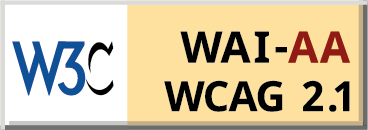INTRODUCTION
Structuring real estate deals through a foundation in the Dubai International Financial Centre (DIFC) has become increasingly popular in Dubai. This approach provides high-net-worth individuals with efficient asset management, confidentiality, and tax optimization.
A DIFC foundation is a legal entity that holds and manages assets, such as real estate, for private or charitable purposes. Governed by DIFC Law No. 3 of 2018 (the DIFC Foundation Law), it offers significant advantages for real estate ownership, especially for foreign investors. Unlike corporate entities like limited liability companies, a foundation has no shareholders. Instead, it operates based on its charter and by-laws, managed by council members.
KEY FEATURES OF A DIFC FOUNDATION
Confidentiality
A DIFC foundation safeguards the identities of its qualified recipients (QRs) and founders. It ensures privacy, allowing QRs to receive distributions without public disclosure of their financial affairs. This feature benefits individuals who prefer to maintain a low profile or families managing wealth discreetly.
Additionally, the foundation’s assets remain separate from the founder’s personal assets. This separation protects against legal claims or creditors.
QRs Are Not Ultimate Beneficial Owners (UBOs)
Under DIFC Ultimate Beneficial Ownership Regulations 2018, QRs are not considered UBOs unless they control the foundation and its assets.
Flexibility in QR Designation
The founder can modify the list of QRs at any time, ensuring that real estate stays within the intended lineage or trust structure. However, changes in QRs may trigger land transfer fees, as required by the Dubai Land Department (DLD).
Succession Planning
DIFC foundations provide a structured approach for succession planning and mitigating incapacity risks. By transferring personal assets into the foundation, founders create a clear distinction between personal and foundation holdings. Upon the founder’s passing, assets distribute as planned, reducing disputes among heirs.
The foundation itself owns the underlying assets, not the QRs or founder. Since it has no shareholders, the incapacity or passing of a founder or QR does not disrupt asset distribution. Additionally, since the assets are not part of a probate estate, the foundation remains unaffected.
Direct Ownership of Dubai Real Estate
A 2017 Memorandum of Understanding (MOU) between the DLD and DIFC permits DIFC foundations to own freehold property in designated Dubai zones, including Downtown Dubai, Business Bay, Dubai Marina, and Palm Jumeirah. Foundations registered in other Emirates cannot own real estate in Dubai.
This MOU establishes a mechanism for tracking transactions, ensuring land transfer fees are paid, and preventing unauthorized ownership changes. All real estate transactions involving DIFC foundations must be recorded and reported to the DLD. This measure prevents attempts to circumvent the 4% standard land transfer fee applied during ownership transfers.
Tax Efficiency
Foundations are considered corporate bodies and generally subject to corporate tax. However, family foundations holding and managing personal wealth can apply for tax-transparent treatment under specific conditions.
A properly structured DIFC foundation allows distributions to QRs and foundation income to benefit from an effective tax-free regime in the UAE. However, this tax regime is not automatic and requires proper structuring.
LAND TRANSFER FEES
The DLD imposes land transfer fees when registering real estate ownership. The fees vary based on the nature of the transfer and the parties involved.
1) Standard Land Transfer Fee (4%)
For most real estate transfers, the DLD charges a 4% fee based on the property’s market value. This standard rate applies to transfers involving individuals or legal entities, including DIFC foundations.
2) Reduced Land Transfer Fee (0.125%) – “Hiba” (Gift Fee)
A lower fee of 0.125% applies in specific cases, such as:
- Transfers between first-degree relatives (e.g., parent to child or between spouses).
- Transfers of foundation shares where ultimate beneficial ownership remains unchanged.
This reduced rate minimizes costs in succession planning or restructuring while maintaining the same beneficial ownership.
3) Land Transfer Fees Based on Beneficial Ownership
In Dubai, land transfer fees apply not only to changes in legal ownership but also to shifts in beneficial ownership within a DIFC foundation. The DLD assesses fees when an economic interest in real estate changes, even indirectly.
Potential scenarios requiring analysis and DLD verification include:
- Adding or removing a first-degree relative (e.g., spouse, parent, child) or non-related third party as a QR.
- A QR contributing real estate or shares of a company owning real estate to the foundation.
- Adding a new QR to an existing mix of first-degree relatives and non-related parties.
The DLD determines the specific land transfer fee case by case.
By structuring real estate ownership through a DIFC foundation, investors can benefit from confidentiality, succession planning, tax efficiency, and regulatory advantages while ensuring compliance with Dubai’s legal framework.
Get in Touch
This analysis is authored by our Corporate Partner Gerry Rogers and Associate Danila Kriuchkov, who provide key insights to help you navigate these regulatory changes. To discuss how they might affect your business, schedule a consultation with our partner today.
